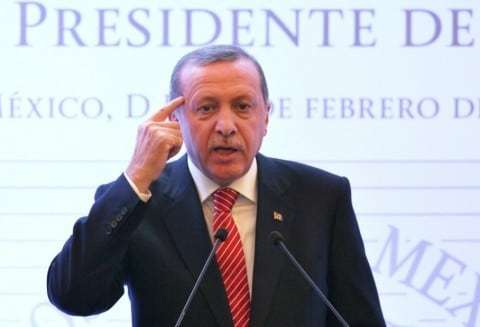The Volokh Conspiracy
Mostly law professors | Sometimes contrarian | Often libertarian | Always independent
Is the overthrow of a democratically elected government ever justified?

Most democratic governments - including the United States - condemned the attempted recent military coup against Turkish President Recep Tayyip Erdogan, and welcomed its failure, citing the need to respect Turkey's "democratic" institutions. But in the aftermath, Erdogan took the opportunity to persecute his political opponents on a large scale, including firing thousands of judges who might constrain his authoritarian tendencies. Erdogan's government was also severely undermining civil liberties long before the coup, even going so far as to pass a law criminalizing "insults" to the president, under which hundreds of people have been prosecuted. Erdogan's own commitment to democracy is questionable, at best. He famously once called democracy a tram that "[y]ou ride it until you arrive at your destination, then you step off."
This raises the question of whether the coup attempt against Erdogan might have been justified. More generally, is it ever justified to forcibly overthrow a democratic government? In this 2013 post, written after the successful military coup against Egypt's radical Islamist government, I argued that the answer is sometimes "yes." There should be a strong presumption against forcibly removing a democratic regime. But that presumption might be overcome if the government in question poses a grave threat to human rights, or is likely to destroy democracy itself by shutting down future political competition. Here is an excerpt (and see also this follow-up post):
Some argue that it would be hypocritical for the United States or other Western nations to support the recent military coup against radical Islamist Egyptian President Mohammed Morsi. After all, we supposedly champion democracy, and Morsi was democratically elected. Whether the US should endorse the post-coup government, oppose it, or take a wait-and-see attitude is a tough question. But it isn't inherently hypocritical for liberal democrats to - in some cases - support the overthrow of an elected government.
That's because democracy is not the only important liberal value, and not always the most important one. At the very least, the liberal tradition, broadly defined, also values individual freedom, equality for women, toleration of religious and ethnic minorities, economic progress, and the prevention of mass murder, slavery, and genocide. Most of the time, democracy promotes these other liberal values better than the available alternative regimes. But not always. Democracy and liberal values conflict in cases where public opinion is highly illiberal and cases where the democratic process brings to power parties that intend to shut down future political competition. Both problems are relevant to the present situation in Egypt and at least some other nations.
This doesn't necessarily mean that the coup attempt against Erdogan was justified. Much depends on what the coup plotters would have done had they prevailed. We cannot, for example, rule out the possibility that they might have set up an even more oppressive government than Erdogan's. We can't even completely ignore the possibility that the coup was a "false flag" operation staged by Erdogan himself in order to provide a pretext for a crackdown against his opponents.
It is also worth noting that Turkish public opinion is not as illiberal as Egyptian opinion was in 2013. For example, only 12% of Turks favor making Sharia law the official law of their nation, as compared to 74 percent of Egyptians. This makes it more likely that Erdogan's repressive Islamist policies will ultimately be ended by future democratic elections (assuming he does not fully succeed in his campaign to suppress the opposition).
The recent coup attempt in Turkey might well have been a terrible idea - especially given that its failure has actually strengthened Erdogan's position, thereby exacerbating his repressive policies. But, in at least some dire situations, the forcibly overthrow of a democratic government might be justified, even if it was not in this case.


Show Comments (0)